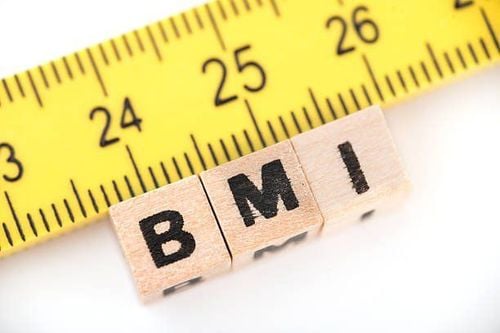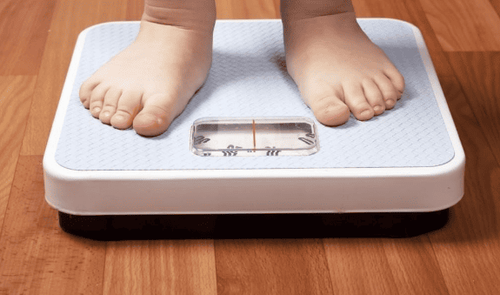This is an automatically translated article.
The article was professionally consulted by MSc.BS.Huynh Bao Toan - Neonatologist, Vinmec Nha Trang General Hospital. The doctor has 13 years of experience in the field of Pediatrics.One in three children in the US are overweight or obese, and the number is still growing. Children are less likely to have weight-related health problems than adults. However, children are at a higher risk of being overweight in adolescence and adulthood, which puts them at higher risk of chronic diseases such as heart disease and diabetes later in life. Children who are overweight are also prone to stress, sadness, and low self-esteem.
1. Causes of overweight in children
Excessive and abnormal accumulation of body fat is known as overweight and obesity, which has adverse health consequences. An imbalance in energy intake and daily energy expenditure is a common feature of overweight children.Children become overweight and obese for many reasons. The most common causes are genetic factors, inactivity, an unhealthy diet, or a combination of all of these factors. Only a small number of cases of children being overweight are caused by a medical problem, such as a hormone problem. A physical exam and some blood tests can rule out the possibility that a medical condition is the cause of your obesity.
Although weight problems are also caused by genetic factors, not all children with a family history of obesity will be overweight. Children with overweight parents or siblings may be at higher risk of being overweight, but this is related to the family's eating and living habits.

2. Children who are overweight are at risk of what diseases?
Children who are overweight or obese are at increased risk of some of the following conditions:High cholesterol High blood pressure Cardiovascular disease Diabetes Bone problems Skin problems such as heat rash, fungal infections and acne Children who are overweight or obese are three times more likely to have high blood pressure, seven times more likely to have atherosclerosis, and two times more likely to develop coronary heart disease than children of normal weight.
Overweight and obesity in children increases the risk of high blood pressure, heart disease, diabetes and other chronic diseases both in childhood as well as in adulthood.

3. How to know if a child is overweight?
A study was conducted with 281 mothers to see how mothers calculate the body size of their children. The average child is almost 2 years old. The mothers are aged between 18 and 46, most of them are overweight and obese.Research has shown that, most mothers do not know the exact body size of their children, but are very satisfied with the size of their children. Dissatisfied people often find ways to make their children look bigger.
This is not good at all if the child is already at a healthy weight or is overweight. Because if you want your child to grow up, you can encourage him to gain weight.
Is a healthy baby a chubby baby? Many people believe that a chubby baby is a sign of good parenting, but this is no longer true. Chubby children are more likely to become overweight or obese adults – especially if their parents mistakenly think they are underweight and try to get them to gain weight.
As it stands, about 1 in 3 children in the US is overweight or obese before age 5. Childhood obesity rates in the US have tripled since the 1970s. If parents can't even determine that their child is overweight, they won't be able to prevent their child from becoming overweight or obese.
The best person to determine if your child is overweight is a specialist. To determine if your child is overweight, your doctor will measure your child's weight and height and calculate your baby's BMI or body mass index, to compare this with standard values. Your doctor will also consider your child's age and growth pattern.

4. How to overcome overweight in children
If you have an overweight child, it is very important that you let them know that you will always be with them. Children's feelings about themselves are often based on parents' feelings about them, and if you accept your child at any weight, they will feel more positive about themselves. It is also important that you talk to your child about their weight, allowing them to share their concerns with you.Discourage parents from forcing their children on their weight. Instead, parents should focus on gradually changing the family's physical activities and eating habits. By participating in all family activities, everyone is adopting healthy habits and overweight children don't feel alone.
From a very young age, mothers are often not aware of the child's body size or weight status. This misconception can lead to encouraging children to eat more than necessary.
Parents are a factor that has a lot of influence on children, especially when children are young. This is the right time to encourage children to eat fruits and vegetables.
Besides, you may need the support of a pediatrician to know the exact weight status of the child with timely advice from experts. There are many ways for the whole family to practice healthy habits, the most important of which is increasing physical activity, such as:
You need to exercise regularly: If your child finds that you If they practice physical activity regularly, they will learn and maintain these activities for the rest of their lives.

Pediatrics department at Vinmec International General Hospital is the address for receiving and examining diseases that infants and young children are susceptible to: viral fever, bacterial fever, otitis media, pneumonia in children, ... With modern equipment, sterile space, minimizing the impact as well as the risk of disease spread. Along with that is the dedication from the doctors with professional experience with pediatric patients, making the examination no longer a concern of the parents.
Please dial HOTLINE for more information or register for an appointment HERE. Download MyVinmec app to make appointments faster and to manage your bookings easily.
References: webmd.com
Recommended videos:
Obesity treatments














